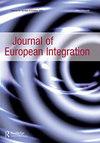Clear messages to the European public? The language of European Commission press releases 1985–2020
IF 3.1
1区 社会学
Q1 INTERNATIONAL RELATIONS
引用次数: 10
Abstract
ABSTRACT The public politicisation of European integration indicates a growing demand for public communication of supranational politics. This paper highlights that the messages the European Commission sends to its citizens do not meet this demand. A text analysis of almost 45,000 press releases the Commission has issued during 35 years of European integration rather indicates an extremely technocratic style of communication. Benchmarked against large samples of national executive communication, public political media, and scientific discourse, the Commission used and notably continues to use very complex language, specialized jargon, and a nominal style that obfuscates political action. This appears disadvantageous in a politicized context and more research on the reasons for this apparent communication deficit is needed.向欧洲公众传达明确信息?欧盟委员会新闻稿语言1985-2020
摘要欧洲一体化的公共政治化表明,超国家政治对公共沟通的需求日益增长。本文强调,欧盟委员会向其公民发出的信息不符合这一要求。对欧盟委员会在欧洲一体化35年期间发布的近45000份新闻稿的文本分析表明,这是一种极其技术官僚的沟通方式。以国家行政沟通、公共政治媒体和科学话语的大量样本为基准,委员会使用并继续使用非常复杂的语言、专业术语和模糊政治行动的名义风格。在政治化的背景下,这似乎是不利的,需要对这种明显的沟通不足的原因进行更多的研究。
本文章由计算机程序翻译,如有差异,请以英文原文为准。
求助全文
约1分钟内获得全文
求助全文

 求助内容:
求助内容: 应助结果提醒方式:
应助结果提醒方式:


